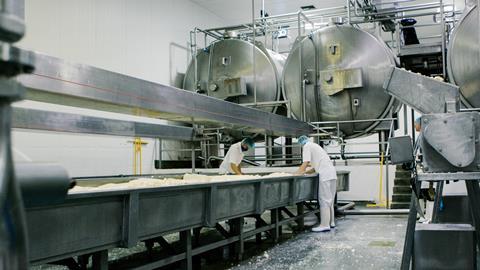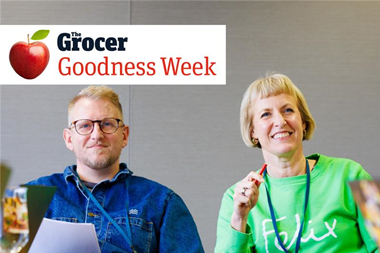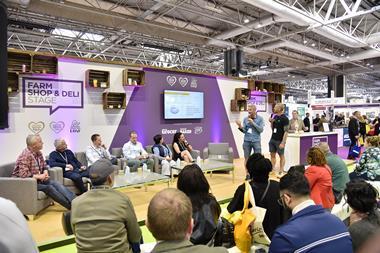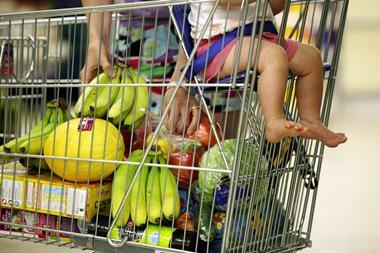Chief sustainability officer roles have multiplied in recent years. But as scrutiny grows over green claims and principles, a huge knowledge gap is emerging across the wider team
The pressure to get to grips with the green agenda is mounting. If it isn’t shoppers boycotting brands deemed bad for the planet, it’s policymakers demanding detailed breakdowns of carbon output, or advertising watchdogs scrutinising every sustainability-related claim.
In this environment, you can forget winging it. Satisfying this growing set of demands requires teams with a close grasp of an ever-evolving and often deeply technical set of issues.
After all, even some of the industry’s heaviest hitters have fallen foul of the rules. Alpro, Tesco and Innocent are among those to have come under the ASA’s microscope amid tough rules on greenwashing in the past – and last year, the regulator banned ads that feature the terms ‘carbon neutral’ and ‘net zero’ unless companies can thoroughly back up their claims.
So, does the industry have the sustainability skills it needs? And if not, what’s missing?
If food and drink is lacking skills, it’s far from the only industry in that position. Demand for green skills outstrips supply across the whole of the UK.
According to LinkedIn data, just one in eight British workers possess skills in key areas such as climate action planning or sustainable product development, while almost a third of jobs advertised in the UK last year required at least one green skill. Construction, utilities and government administration are among those sectors with the longest list of green vacancies, according to the report.
However, the public-facing nature of consumer goods arguably leaves the sector among the most exposed when it comes to mishaps.
It’s why Kate Cawley set up Future Food Movement in 2021, a membership community specifically designed to address the skills gap and upskill food and drink teams. “Over the past few years, the sector has developed a fear of greenwashing or getting it wrong,” she says. “That’s linked to this lack of knowledge and understanding of all the big issues and how interconnected they are.
“It isn’t that the majority of people we engage with didn’t want to understand or do the right thing, but they didn’t know how to go about it if they weren’t in the sustainability team. And the more senior a role gets, the bigger that skills and confidence gap becomes.”
This dynamic is fuelled by the way sustainability teams tend to operate in silo in many organisations, she believes, rather than being integrated into each function. Plus, “there’s a lack of time and focus that people are giving this, particularly when there are competing priorities at a boardroom level”.
The lack of skills can be more apparent in divisions like marketing – despite the aforementioned advertising clampdown. That’s something Jessi Baker, founder of sustainability social enterprise Provenance, has witnessed herself. “In supply chain teams and procurement teams, they’ve had no excuse but to upskill already because they’ve been feeling firsthand the problems with, say, sourcing product from areas with extreme droughts and flooding,” she says.
“In centralised operations functions, too, they’ve had to deal with social impact issues, like the gender pay gap and compliance with mandatory carbon reporting measures. But for me the ‘wild west’ – and where we really need to upskill – is people in commercial functions like sales and marketing.”
In fact, a third (35%) of marketers admit themselves there’s a knowledge gap when it comes to sustainability, according to a 2023 Kantar survey – a 13% increase on 2021 figures. A Chartered Institute of Marketing (CIM) report the same year found 40% of marketers lacked any type of sustainability qualification and would like that to change.
Upskilling would be sensible from a business perspective, given the Competition & Markets Authority (CMA) crackdown on green claims. The competition watchdog is due to shine a spotlight on grocery – having already taken the fashion industry to task – after finding some 40% of sustainability claims made in marketing are inaccurate or misleading. The implication aren’t simply a slap on the wrist, either: the CMA will soon have the power to fine offending companies up to 10% of turnover for a comms misstep.
Six policies testing grocery’s green skills
The Green Claims Code (GCC)
Introduced in September 2021, as the CMA began to sharpen its focus on greenwashing, the GCC is intended as a guide for companies making any marketing claim on environmental credentials. Though the code doesn’t have legislative footing, it’s used as a framework to decide whether claims breach consumer protection laws.
Corporate Sustainability Reporting Directive (CSRD)
It might be an EU policy, but the CSRD – which requires companies to disclose detailed insights on environmental and social impact – will also apply to UK companies selling €150m-plus of goods into the bloc and/or with an EU subsidiary. The first set of CSRD reports are due in 2025.
Financial Conduct Authority’s (FCA) ‘anti-greenwashing’ rule
In force as of May, the FCA’s clampdown on greenwashing will obligate companies to ensure any references to the sustainability of products or services are “fair, clear and not misleading”. Fall foul and companies could face fines, restrictions and/or the withdrawal of all ‘greenwashed’ communications.
UK Sustainability Disclosure Standards (SDS)
Taking effect from 1 January 2026, the SDS guidelines require companies to be transparent about sustainability risks and opportunities. Applying to UK-listed companies, large UK-registered private companies and large limited liability partnerships, it’s seen as a step toward aligning UK sustainability reporting more closely with international norms.
Streamlined Energy and Carbon Reporting (SECR)
Introduced in 2019, the SECR mandates all large businesses in the UK to report annually on metrics like energy and carbon emissions as well as any efficiency measures. It’s estimated some 11,900 UK companies fall within the scope of the policy.
Taskforce on Climate-Related Financial Disclosures (TCFD)
Designed to help investors understand how companies are transitioning to a low-carbon economy, TCFD is already in force and applies to all public listed companies and large private companies/LLPs with over 500 employees and a turnover greater than £500m.
The knowledge gap
For marketers and other functions, some hefty knowledge is required to plug the skills shortfall. On the advertising side, organisations like Ad Net Zero – set up four years ago – offer training on how to advertise sustainable products responsibly.
But it’s not just about understanding advertising rules. An in-depth knowledge of the product you’re selling and the wider landscape is also essential.
Hannah Cornick, head of sustainability and social innovation at Danone UK & Ireland, says the company is “increasingly finding that a wider set of skills are critical in helping us make real impact and deliver business value”.
Cornick lists data and analytics, stakeholder management and influencing and communication skills. “Sustainability is a complex and ever-changing area, so you need the skills to be able to simplify highly detailed information and develop creative ways to help bring that to life and inspire change.”

That point is backed up by Sarah Webster, director of sustainable business at Britvic. “Someone must be able to listen and learn from others, as well as influence others to make change and understand the importance of sustainability. Overall, a person must be able to connect the dots across different parts of the business and areas of social and environmental impact to see where progress can be made and how to do it.”
Efforts to embed this type of expertise have so far resulted in an uneven and evolving journey in the food and drink sector. First, says Provenance’s Baker, there was a rush of “sexy CSOs” – chief sustainability officers – brought in at larger organisations to champion sustainability at an executive level.
“There was definitely a season of appointing these leaders with real gravitas,” she says. “It was a good marketing message as well, right? The idea that if you’re putting someone serious in the role then you must be doing something. We definitely had an era of that.”
By 2022, 37% of UK companies had a CSO in place at the first or second management level, according to PwC, making it one of the fastest-growing exec roles at the time. In 2021 alone, 68 companies appointed a CSO, more than the combined number of appointments in the preceding four years (2016-2020). More than half (57%) opted for a ‘CSO light’, such as a sustainability director or sustainability lead.
“We’re finding that a wider set of skills are critical in helping us make real impact”
Hannah Cornick, Danone UK & Ireland
Although a number of leading consumer goods firms – Unilever, P&G and Danone to name a few – have retained these leadership positions, there has been a shift in thinking in the past couple of years, believes Baker. “There is more of a decentralised framing and an understanding that a culture of sustainability is important. That doesn’t just come from a fancy new figurehead.”
That’s the case at Greencore, says its head of sustainability Fran Haycock, who took on the top job in April last year. “I had a really small team, so when I took the role, the team was restructured,” she says. “One of the key things I had to do was decentralise it so we could get something done. And part of that was setting up a business ownership model, but also in parallel making sure the rest of the team at Greencore had the skills.”
Prior to this restructure, there was a perception – as is the case at many companies – that the sustainability team would single-handedly drive through the ESG agenda, she explains. But now, ownership of key topics, such as energy, health and sustainable diets, falls within the remit of both the wider executive team as well as the middle and senior leaders tasked with leading on a particular topic. “Then my team’s job becomes enabling them, and that’s where upskilling comes in.”
To deliver that upskilling, Haycock has made use of a mix of internal and external resources. Internally, she and her team deliver quarterly sustainability webinars for all their colleagues and host ‘lunch and learn’ sessions. But they also use the likes of the Future Food Movement. “All sustainability teams are stretched, so outsourcing is the way to go,” Haycock says.
The Future Food Movement provides different avenues for upskilling, explains Cawley. First, people can join its community to attend “monthly huddles, trailblazer conversations and all the online networking and in-person events we offer”. Second, individuals can sign up to expert-led masterclasses spanning 30 different themes and topics, all of which are CPD-certified.
And – for those looking to go more in-depth – there are accelerator programmes. The most recent is focused on sustainable diets and food systems transformation, and will act as a “fully blended seven-week process”. Crucially, 80% of members aren’t from specialist sustainability roles.
At smaller companies, like condiments brand Rubies in the Rubble, equipping each team member with knowledge and ownership – rather than relying on a figurehead – is as much necessity as choice. “We used to have a sustainability manager, but in Covid when we needed to get lean to survive, we all had to take on that role,” says founder Jenny Costa.
“It worked well, as people understood their area better than anyone else and could think outside the box at what could be done – from packaging and freight to order quantities – that might impact sustainability.”
More from The Green Issue:
-
The battle for the soul of extended producer responsibility
-
Wrap’s Sebastian Munden on sustainability’s ‘competitive advantage’
-
Is genetic crop engineering the key to climate-resilient agriculture?
-
How Company Shop was turned around
Regular team days are often focused on sustainability, she explains, including talks from third-party experts and volunteering days that “involve education and inspire ideas for change internally”.
For more technical processes, however, such as carbon measurement, the team does outsource to overcome any internal gaps.
“For small businesses, I think the most important thing is to ensure everyone really understands the company’s purpose or sustainable goals in practical detail, so they feel empowered to play their part in living it out in their area of business and change,” Costa adds.
Changing culture
At others, like Rude Health, there’s a blended approach. “We have appointed a head of sustainability, who drives the agenda and sets the targets,” says head of innovation and sustainability Bertel Haugen.
“But we have also ensured each member of the team has specific objectives relating to their role around sustainability. We offer plenty of internal training and engagement, and each of our team members spends a day volunteering in a local food-based charity.”
At Ecotone UK, its assessment criteria for leadership roles reflects its objectives. The process now takes into account whether they have the capabilities and “sustainability DNA” required to drive forward the brand’s purpose-led ethos, says Stendert Krommendam, group HR director, sustainability and communication.
Plus, “in our leadership development training portfolio, we have a dedicated three days of training that all the leaders at the company are put through, where we look at long-term strategy creation – and that includes the planet as one of the key stakeholders.”
The buck doesn’t stop at the boardroom. The company has also launched an internal e-learning programme on biodiversity within food.
“No business is moving fast enough. It’s a big cultural mindset shift we need to see”
Kate Cawley, Future Food Movement
That enables all of its employees to be “ambassadors of our mission and our product portfolio and be confident speaking with family and friends about what we’re trying to do. Because that’s where it starts – the change in the food system starts through your own employees.”
But for all the companies making the right moves, the sector’s progress on closing the skills gap isn’t universal. Nor is it fast enough.
“Yes, there is definitely a real recognition now that the human capital side of a business is super important in this,” says Cawley. “But no business is really moving fast enough. The low-hanging fruit has been achieved within net zero and efficiencies in the supply chain. And there’s some brilliant work going on. But the change we need to see isn’t happening fast enough. It’s a big cultural and mindset shift that we need to see.”
“There’s no two ways about it: sustainability reporting is only getting more serious, and the regulations just keep rolling and rolling,” adds Baker. “You’ve got no choice. You’ve got to get on the bandwagon.”
Or risk falling flat on your face.
Will Gen Z help plug the green skills gap?
Gen Z (supposedly) drink less, work out more and care deeply about the planet. So, given they’re set to make up 30% of the workforce by 2030, what role are they set to play in closing grocery’s green skills gap?
On the one hand, younger workers in food and drink are already facilitating progress, believes Jessi Baker of Provenance. “As time passes, you’re seeing an employee that has more knowledge of sustainability,” she says.

“It’s very broad brushstrokes but, on the whole, each generation appears to care more than the last. They’re more clued up on climate change and you’re getting a natural upskilling just through time passing.”
But equally, if the sector is to attract more of this eco-conscious demographic – which it sorely needs to do, given IGD research found almost half (49%) of 16 to do 24-year-olds say they haven’t considered a role in fmcg – there’s a need to proactively ramp up the ‘green’ opportunities on offer.
After all, sustainability shapes how young workers engage with the job market. A Deloitte survey of nearly 23,000 Gen Z and millennials across 44 countries found half (55%) research the environmental impact of a company and its green policies prior to accepting a job, and more than 40% say they’ve switched jobs due to climate concerns.
A failure to champion sustainability could therefore leave the industry even further down the hitlist for ambitious young workers.
“A big risk coming over the hill is attracting talent and that next generation who really care about these issues,” says Kate Cawley of the Future Food Movement. Currently, “the younger generation is getting quite frustrated with the lack of pace and the lack of ambition”.
And without that changing, they’ll likely take their talents – and knowledge – elsewhere.




















No comments yet